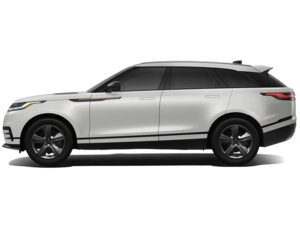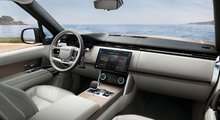Buying vs. Leasing
June 28 2018, Decarie Motors Land Rover

Should I buy a new car or should I lease? The options can be confusing. This handy guide should help you decide which option is the right choice for you.
When you buy a car, you’ll be paying for the entire cost of a vehicle. Some people are able to pay upfront, while most will need to begin a payment plan to repay a car loan – but even if you pay in increments, you still pay the full price of the car.
When you lease a car, it’s yours to use for a set amount of time as you pay a portion of the car’s value each month. That way, you’re only paying for the time you use the car.
BUYING
ADVANTAGES
Owning a car can be a great investment. If you take care of it, you may not need to buy another car for years, or perhaps be able to sell it for a good price when you opt for something new. Because there are no restrictions, you’ll be able to drive as much as you want. And you can customize your car with accessories, add-ons, paint and bumper stickers, or aftermarket performance enhancers.
WHO OWNS IT?
The car is yours and only yours. You might pay for it with cash, or make payments under a financing plan. If you’re financing the car, your lender will require you to meet certain obligations, such as monthly payments or a down payment. Otherwise, your car can be repossessed.
UP-FRONT COSTS
Financing a car means the bank or lender will need an initial payment from you, which is usually calculated according to your credit score, among other factors. You may also choose to trade in your old vehicle, the value of which can be put towards your down payment.
FUTURE VALUE
While the value of a new car begins to depreciate as soon as you drive it off the lot, you may be able to sell your car for a fair price as long as you maintain it properly. It’s important to visit a factory-authorized service facility at regular maintenance intervals for this reason. However, even a car in bad shape may be sold for parts or scrap.
END OF PAYMENTS
You’ll have to pay a certain amount as stipulated in your contract, but once you’re done, that’s it. The institution you borrowed from will send you a Lien Release, which is proof that the vehicle belongs entirely to you and may not be repossessed for nonpayment. The vehicle is now yours.
LEASING
ADVANTAGES
Leasing a car is much cheaper than buying it outright, because you’re only paying a percentage of the total price. You won’t have to worry about fetching a good price or finding a buyer for it when you’re done, as the dealership will take it back from you. If you like to have the newest gadgets in your car, leasing may be your best bet, as you can regularly upgrade to drive the latest models. You may also be able to drive a fancier car than you could normally afford.
WHO OWNS IT?
The institution through which you are leasing the car retains ownership. You’re essentially renting the vehicle. Your contract will state you’re using the car for a set amount of time in exchange for a set amount of money.
UP FRONT COSTS
A lease doesn’t typically require a down payment, but you will have to provide the first month’s payment along with a security deposit, acquisition fee, and any other applicable costs. It’s possible to lower the amount of your monthly payments by increasing your initial fee.
FUTURE VALUE
Because you don’t own the car, you will turn it in to the leasing agency at the end of your lease. However, pay close attention to any mileage restrictions or wear and tear guidelines—excessive use may cost you extra when you return your vehicle.
END OF PAYMENTS
You usually just return the vehicle when your lease ends. However, you may be able to purchase it during or after the term of your lease, or trade it in before the term of your lease is over. If you think you might want to employ any of these options, ask your financing agent about them before the lease is signed.
THE BEST CARS TO LEASE
The amount you’ll pay for a lease is based on the amount of time you’ll have the car and the amount it will depreciate once you’ve driven it, so the cheapest leases are those for cars that will retain their value after the term of the lease is up. You can review lease ratings to see which cars will depreciate quickly and which cars will stay valuable.





